A year and a half after an oil train inferno ended 47 lives in Lac-Megantic, Quebec, the crude-by-rail industry rolls on, virtually unimpeded. It’s hard not to feel horrified when, one after another, we register the place names of oil train explosions—Aliceville, Alabama; Casselton, North Dakota; Lynchburg, Virginia—as grim warnings of what could happen in so many other North American communities.
Government regulators have been slow to act, their responses painfully milquetoast. As a result, much of what I do involves research into the often-complex details of federal rulemaking procedures, rail car design standards, insurance policies, and the like—all the issues that Sightline is shining a light on.
Yet on some level it’s not about any of that. It’s about a reckless and unaccountable oil industry that—in the most literal and obvious way—profits by putting our lives at risk. Every time I hear one of their accountability-shirking lines, I can’t help recalling images from those tragedies and near-tragedies. The juxtaposition is so startling that we decided to undertake a small photo project to capture it. We hope that you’ll find the following useful in your own work, and if so, that you’ll share the images with your own networks.
It’s practically a given that we’ll hear more empty reassurances and lies from oil and rail executives in the new year, and as growing numbers of oil trains crisscross the continent, there’s every likelihood we’ll have another catastrophe to catalog. To grasp the magnitude of the oil industry’s cynicism, it’s best to hear them in their own words.
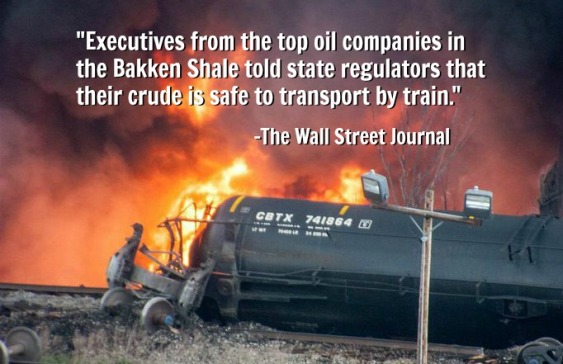
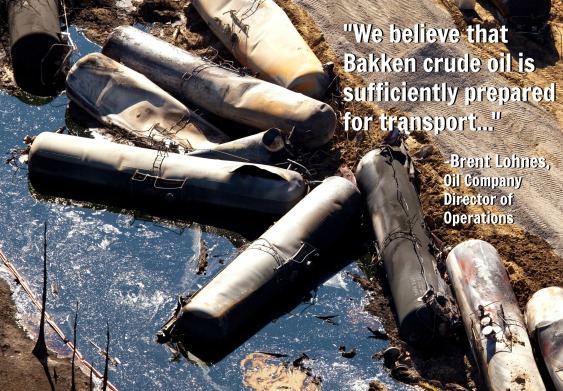
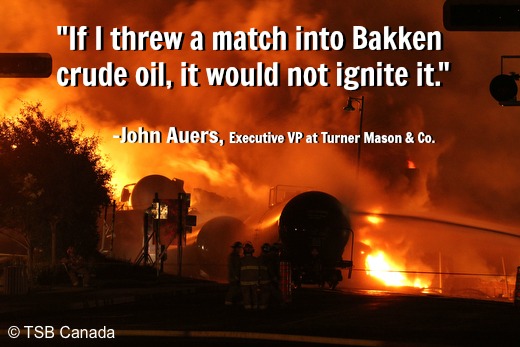
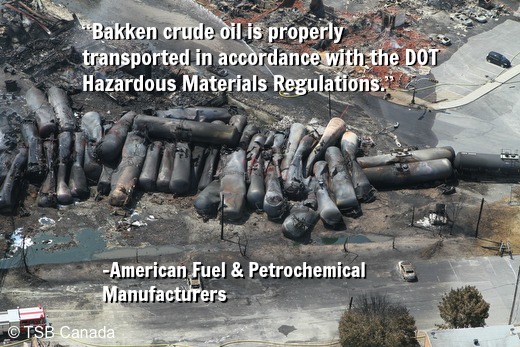
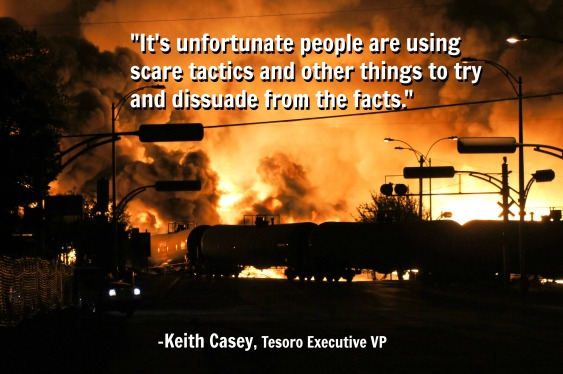
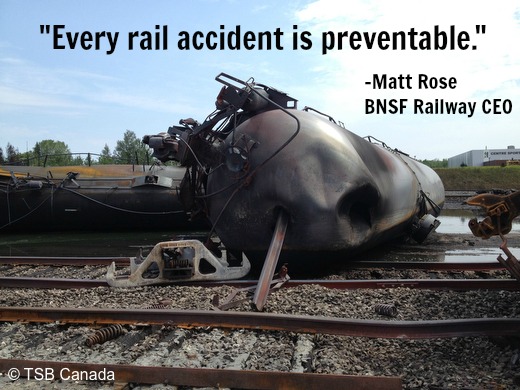
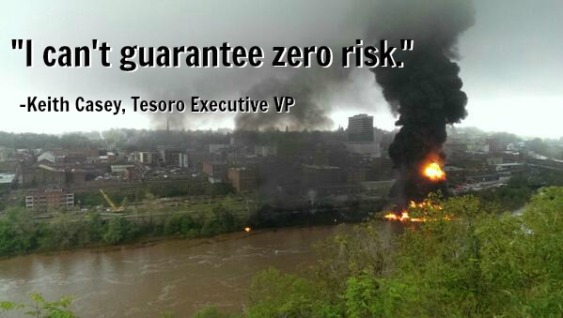

Comments are closed.